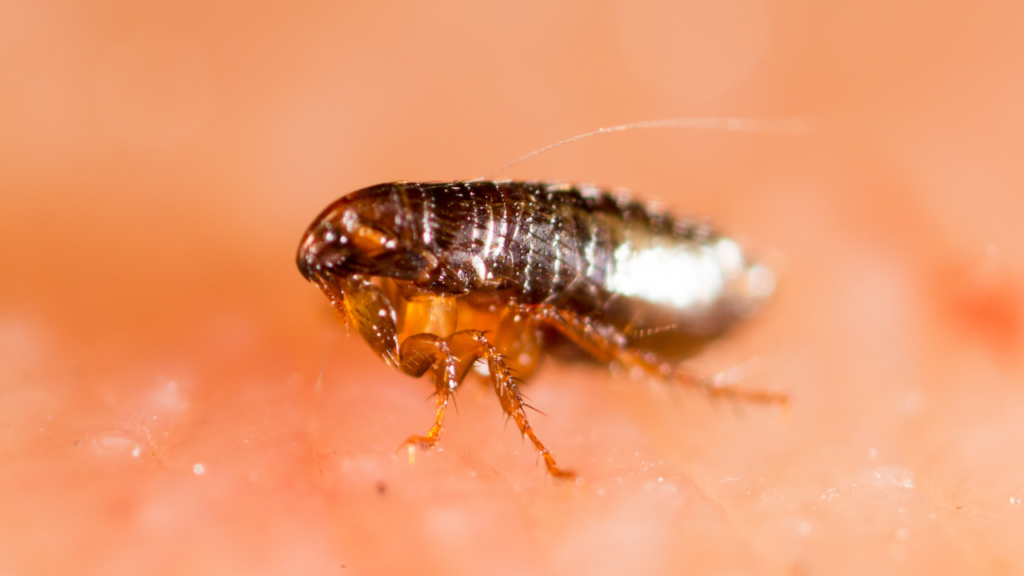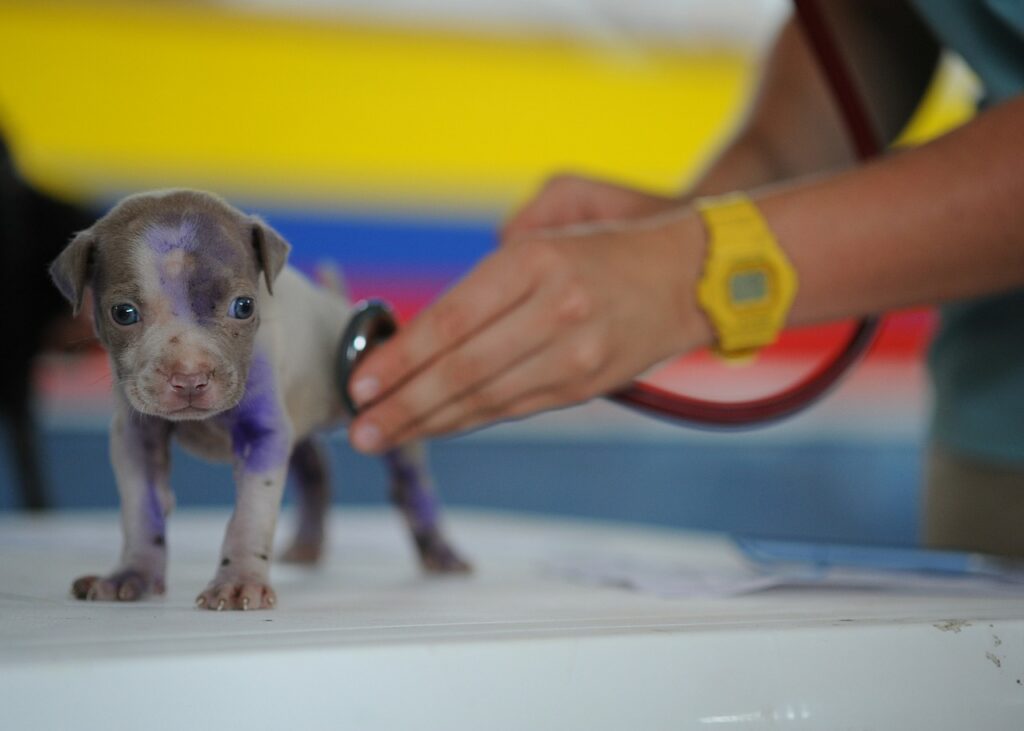If you have pets, fleas are definitely one of your constant concerns. And it is really helpful if you gain a better understanding of fleas — knowledge that can aid you in flea prevention and treatment. One of the most common questions pet owners have is, “How long can fleas live without a host?” It’s an interesting question because it focuses on the vulnerability of fleas. But unfortunately, the answer is not as simple as it sounds…
Adult fleas can live without a host for a few days, but…
To answer the question quickly — adult fleas can live without a host for only a few days, up to two weeks max. But the keyword there is “adult.” Fleas at other life stages may survive longer without a host — up to nine months. To understand this better, it’s important to know the flea life cycle.
- Fleas are parasites that need blood to survive. Parasites are organisms that live on other organisms of other species. Since fleas live on various animals, they are considered parasites. Fleas feed on the blood of their host about 10 to 15 times a day — especially female fleas because they need the blood to develop their eggs. Without blood or a host, adult fleas can’t survive very long and the females won’t be able to reproduce.
- Fleas have four life stages. Adult female fleas can begin laying eggs just mere days after their first blood meal from their host. They can lay up to 40 eggs a day and 2,000 in their entire lifetime. This is one of the reasons why fleas are such resilient pests. Their numbers alone make them hard to eliminate. Flea eggs can turn to larva, pupas, and adults, all in 28 days. And they can live for about two to three months, with the most resilient among them living for more than a year.
- Non-adult fleas can hibernate and survive for a very long time without a host. Fleas can be in their pupa stages for up to nine months, especially with the right environmental conditions. They don’t need blood to survive either, unlike their adult counterparts. This is a problem because this dormant phase may give the impression that the flea infestation is over when in fact the fleas are just basically in hibernation.

Why consistent flea prevention is necessary
- Fleas are health risks to both pets and humans. Fleas can carry pathogens that cause human diseases like plague. Fleas can also lead to tapeworms and other parasites when they are accidentally ingested. Children are particularly vulnerable to these parasites because they spend more time on the floor where there are fleas. Flea bites are also not something you should ignore. Though rarely, they are still capable of triggering allergies.
- Flea hibernation can give the impression that the fleas are gone. Dormant fleas in their pupa stages can suddenly “wake up” and jump on a passing animal. You can move to a new home with the impression that it is free of fleas when in fact the fleas are just in hibernation, waiting for an animal to pass and infest. This hibernation phase can also give the impression that the fleas are gone when they are just waiting for the perfect opportunity to strike.
- Fleas can thrive in homes, not just in pets. Fleas don’t just live in your pets. They can also thrive in beds, carpets, pet houses, and other areas where they can consistently get blood. It’s even possible to have fleas in a house without pets, especially if the previous occupants of the house have flea-infested pets and have left hibernating pupas on the property. Luckily, it’s fairly simple to get rid of these fleas. Conventional home cleaning products and vacuum cleaners are often enough.
Effective flea treatment
- Consult a veterinarian. There are many factors to consider to determine the right flea treatment for your pet. Age, weight, and medical history are the first ones that come to mind. But do you know that you also generally can’t use the same treatment for cats and dogs? If you both have a cat and a dog, you may think you are saving money by using the same treatment, but you are likely to spend more because of the medical bills you will get from the side effects. It’s best to just spend a little money on a consultation with a veterinarian.
- Always check the label of the flea treatment packaging. Yes, there are a lot of complications to determine the right flea treatment for your pet. But you can also say that it is relatively simple — just read the label of the flea treatment packaging. Usually, the label will provide the information you need, like what age and kind of pet you can use the treatment on. If you don’t want to go to a veterinarian, carefully scrutinizing product labels will go a long way in your amateur battle with fleas.
- Remember that there can be side effects. Flea treatment products have toxic ingredients, which is not surprising for products meant to kill. Unfortunately, these toxic ingredients can affect you and your pets even if you follow instructions diligently. Even FDA-approved flea treatments can have side effects, and the government acknowledges it. This is one of the main reasons why consulting a veterinarian is even more recommended. It just helps to have a medical professional guiding you in treating your pet’s fleas.

Fleas don’t live long without a host
Fleas need consistent blood meals to survive. Adult fleas can only live for a few days without a host. But the keyword there is “adult.” Fleas on other life stages, particularly the pupa stage, don’t need consistent blood meals. They can hibernate for up to nine months and immediately “wake up” when a potential animal host suddenly passes by.
Flea infestations are tricky, and that’s why consistent prevention and professional treatment are necessary to effectively and safely get rid of them. It’s best to consult a veterinarian because there are a lot of complications in flea treatment that can put your pet in danger if you don’t know what you are doing.

